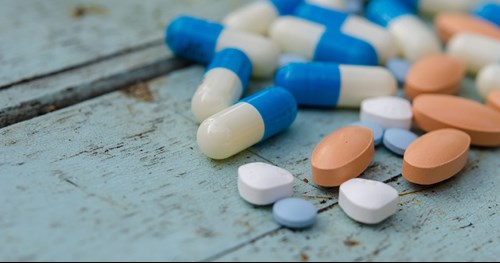RISE looks at recent headlines concerning social determinants of health (SDoH).

HHS announces nearly $15M in funding to address drug use, overdose in rural communities
The U.S. Department of Health and Human Services (HHS) has invested close to $15 million to prevent stimulant misuse and drug overdoses in rural communities. The funding is the latest initiative from the Biden administration’s efforts to address the ongoing overdose epidemic and is part of HHS’ Rural Communities Opioid Response Program (RCORP) initiative.
RELATED: Study reveals persistent health disparities in opioid treatment access
"The nation’s overdose epidemic has taken too many lives too soon, particularly across our rural communities,” HHS Secretary Xavier Becerra said in a statement. “The Department is committed to expanding access to substance use prevention, treatment, and recovery services as part of our National Overdose Prevention Strategy. Today’s funding builds on our ongoing efforts to do all we can to meet the needs of those battling addiction—providing not only care, but hope, to all individuals and their loved ones."
RELATED: COVID-19 escalates opioid epidemic and other addictions, intensifies mental health issues
The funding aims to address misuse and overdoses of psychostimulants such as methamphetamine and other illegal drugs, including cocaine, ecstasy, and prescription stimulants.
The United Health Foundation commits $100M to further health equity over next 10 years
The United Health Foundation, a philanthropic foundation of UnitedHealth Group, has announced a $100 million initiative to advance health equity through a more racially and ethnically diverse health workforce. Over the next 10 years, the foundation will use the funding for scholarships, support, and additional training for 10,000 underrepresented current and future clinicians.
“Today, there are far too many barriers to good health that are disproportionately experienced by people of color, historically marginalized groups, and those with lower incomes,” said Patricia L. Lewis, chief sustainability officer, UnitedHealth Group, while announcing the philanthropic commitment at the Social Innovation Summit in Washington, D.C. last week. “We are committed to leading the way, along with our partner organizations, in deploying tools, talent and resources to actively break down barriers, broaden access to care and make it easier for people to live healthier.”
Loneliness a prevalent SDoH among adults
The loneliness epidemic continues to impact adults throughout the country, according to a new report commissioned by Cigna. The report, which used survey data from Morning Consult, found that more than half of U.S. adults are considered lonely, and adults with mental health issues–which have been exacerbated amid the COVID-19 pandemic–are twice as likely to experience loneliness.
“Given this association and widespread mental health concerns following the pandemic, the need to continue to raise awareness about loneliness remains,” the Cigna report states. “It impacts us every day, everywhere, and while society adjusts to the new normal of work, family, social interaction, health and safety, it’s essential that efforts to address loneliness and improve mental wellness continue.”
Additional findings include:
- People from underrepresented racial groups are more likely to be lonely, with 75 percent of Hispanic adults and 68 percent of Black/African American adults classified as lonely
- Adults with lower incomes are lonelier than those with higher incomes
- Young adults are twice as likely to be lonely than seniors, with 79 percent of adults ages 18-24 reporting loneliness compared to 41 percent of seniors ages 66 and older
- Adults who have physical health issues are nearly 50 percent more likely to be lonely compared to those physically healthy
The Commonwealth Fund outlines how to bridge the gap between public health and health care
In a blog post published by the Commonwealth Fund, Michelle Morse, M.D., M.P.H., chief medical officer, and Adriana Joseph, M.P.H., health system specialist, office of the chief medical officer, New York City Department of Health and Mental Hygiene, shared the strategic plan their office developed amid the COVID-19 pandemic to help the New York City Department of Health and Mental Hygiene further health equity throughout NYC and promote antiracism in health care.
The plan consists of five steps to bridge the gap between public health and health care and better prepare for future emergencies:
- Establish two-way communications between health departments and hospitals to forge relationships and increase engagement.
- Prioritize health inequities by ensuring health departments provide health care organizations with timely information on health inequities and how to reduce them.
- Promote antiracism by no longer using practices such as race adjustments in clinical algorithms for kidney care, maternity care, lung function, and other areas.
- Foster accountability between health departments and health care organizations to ensure equitable care to all patients.
- Uphold partnerships to work together on advancing health equity.
Click here to learn more about how the New York City Department of Health and Mental Hygiene implemented this strategic plan to improve COVID-19 vaccination throughout NYC.
